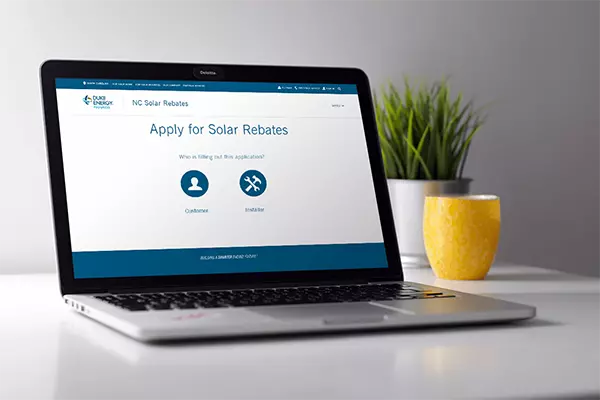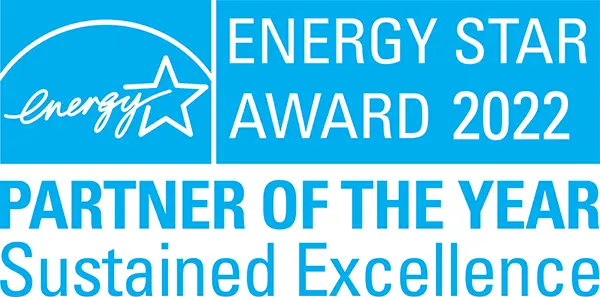North Carolina
Duke Energy Solar Programs
North Carolina solar programs vary based on your utility provider. With around 100 utility companies in the state, there are many nuances when it comes to solar policy and how your solar system connects to the electrical grid. Since Duke Energy is the largest electric utility provider serving North Carolina, we’ll focus on Duke Energy’s solar policies and programs here.
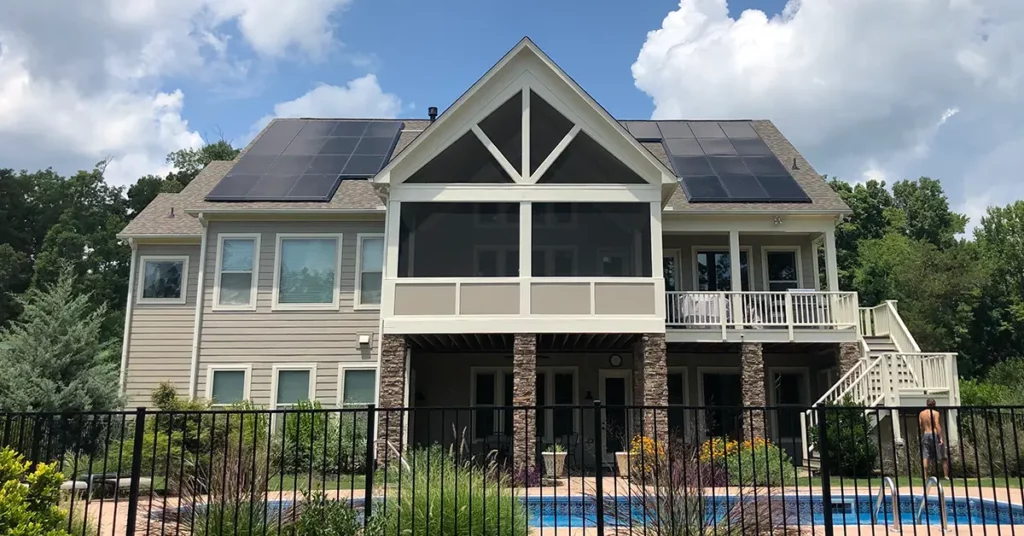
Serviced by a different utility? Reach out and let us know! We’ve been installing solar in North Carolina since 2001, so we’ve gotten to know the many solar ins and outs of various utilities across the state.
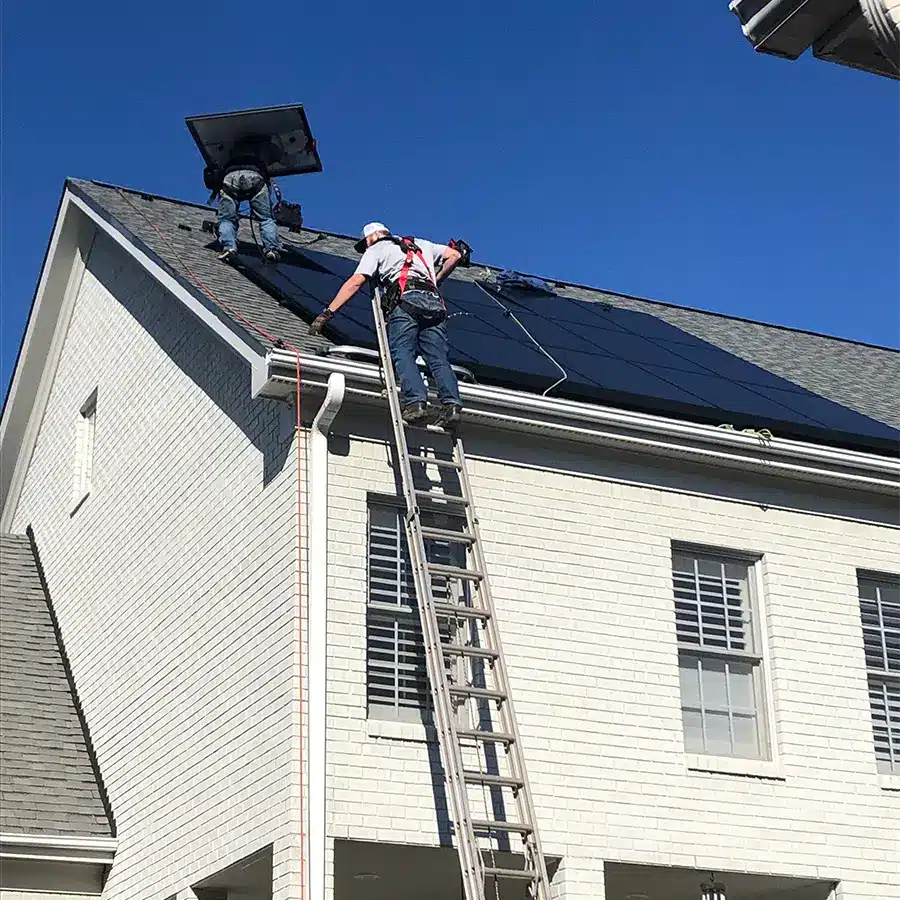
Duke Energy Solar Credits
Of the 3,500+ systems we’ve installed across North Carolina, 99% are connected to the grid. That means when your solar system creates more energy than your home is using, that extra energy is sent back to the grid.
Duke Energy’s solar program offers two solar credit pathways starting October 1st, 2023. New customers will have the choice between a modified net metering credit, called the “Bridge Rate” and a brand new time-of-use (TOU) rate.
Which rate is the best option depends on how you use energy and your goals with solar energy. Our experienced solar designers can model both options for you so you have all the information to make the best choice for your home and family.
Duke Energy Solar Rebate
The Duke Energy Solar Rebate was a (highly competitive) one-time rebate available to homes, businesses, and nonprofits serviced by Duke Energy in North Carolina. This NC solar rebate concluded in January 2023 and is no longer available.
The last Duke Energy Solar Rebate began in 2018 as a result of House Bill 589, offering North Carolinians a great incentive for going solar. In total, $62 million in Duke Rebate funding was awarded to homeowners, businesses, and nonprofit organizations across North Carolina between 2018 and 2023.
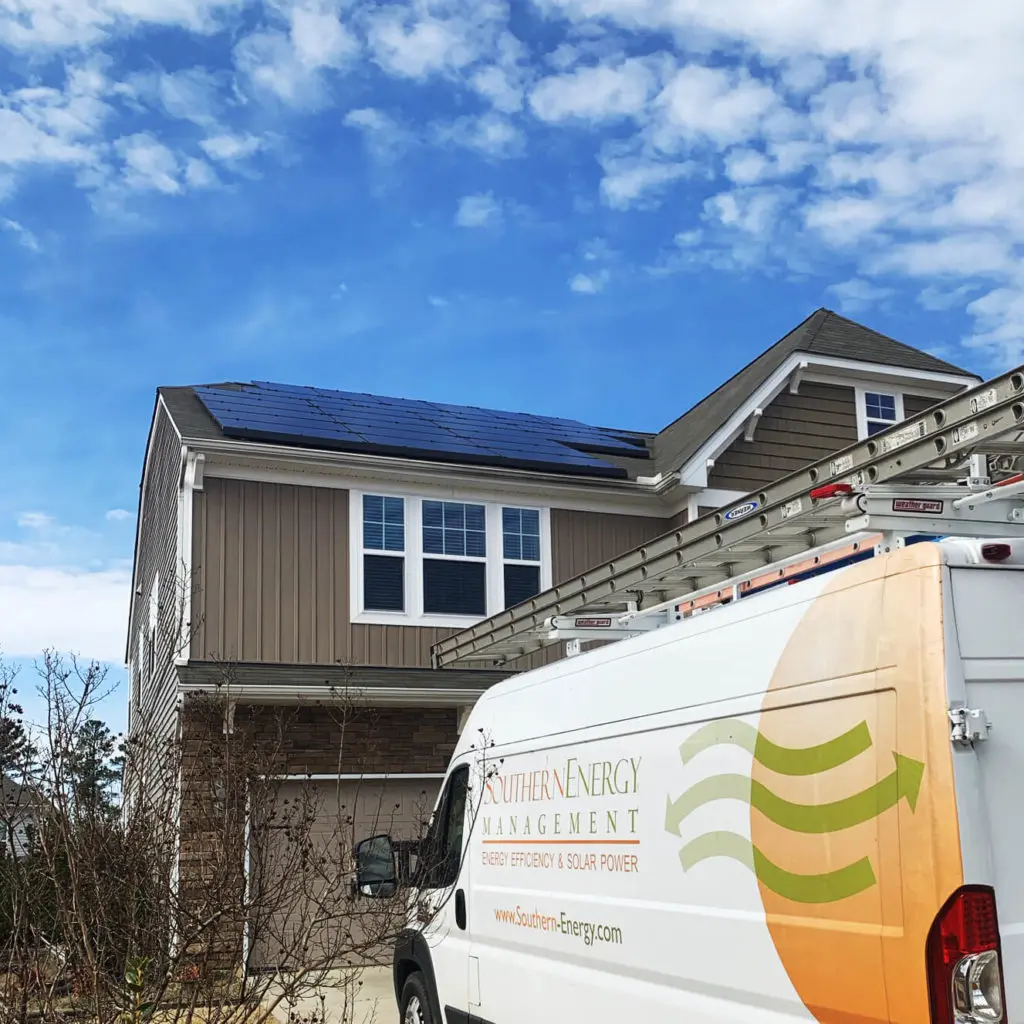
important update
Duke Energy Net Metering Changes
Starting on October 1, 2023, Duke Energy will begin transitioning away from the legacy net metering credit system and will migrate to a new Net Metering 2.0 program with new solar credit options.
Our solar designers will talk you through the options and help you understand what’s changing so you can make the switch to clean energy with confidence.
common questions
Will there be another Duke Energy Solar Rebate in 2023?
This iteration of the Duke Solar Rebate will not return this year, but you can sign up for our newsletter to stay up to date about any future solar rebate developments.
Don’t forget: There are still other solar incentives available to North Carolinians, like the 30% Federal Tax Credit. Learn more below!
2023 North Carolina Solar Incentives
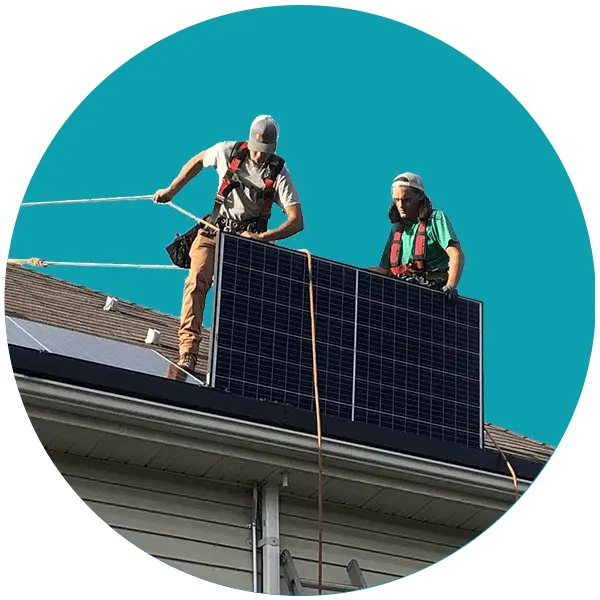
30% Federal Solar Tax Credit
Residential ・ Commercial
Available to homes and businesses, the Federal Solar Tax Credit is a tax credit that you can claim for installing a solar or battery system on your property and is worth 30% of system costs.
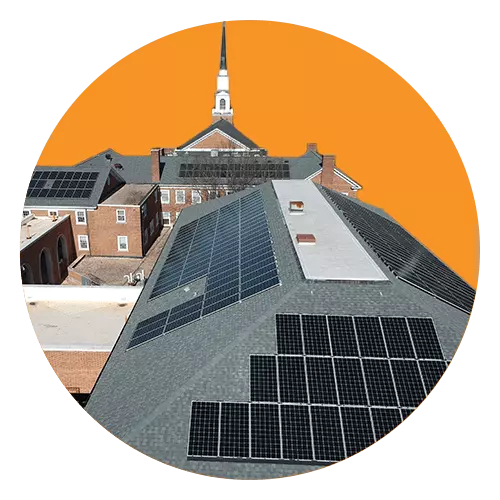
30% Direct Pay Solar Credit
Nonprofit ・ Government
Tax-exempt, nonprofit, and government organizations can now tap into solar cost savings through a Direct Pay reimbursement, worth at least 30% on system costs.
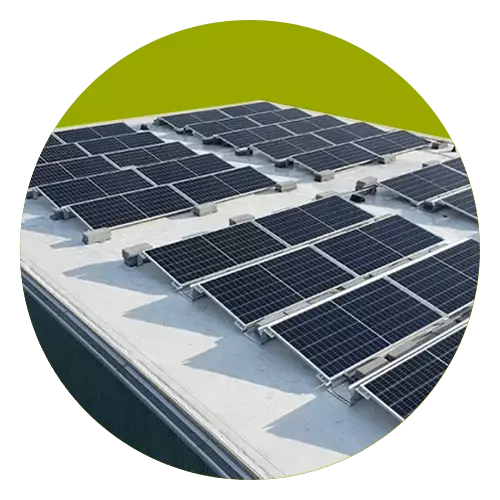
USDA REAP Grant
Farms ・ Rural businesses
The USDA REAP program provides grant funding to farms and rural businesses for solar energy systems to help permanently reduce operating expenses. When combined with other incentives, eligible farms & businesses can save 70-90% on the cost of solar with a REAP Grant.
Benefits of Solar in North Carolina
Sustainable Savings
Lock in your energy rate for 25+ years with solar. With current incentives, clean energy is even more affordable for North Carolinians, making savings even better.
Energy Security & Independence
Generating your own solar energy means buying less from the utility (which means more money in your pocket), while protecting yourself from the utility's rising energy rates.
A Brighter
Future
Your solar system's impact goes far beyond your home. by harnessing the power of the sun, you are able to lead the change to creat a more sustainable future for generations to come.
Calculate Your Solar Savings
See solar on your home! Our solar calculator uses your home address, the details you provide, and LIDAR satellite technology (with a dash of AI) to give you a ballpark estimate of how much you could save by going solar.
Frequently Asked Questions
Our advice: Go solar now to maximize your investment value. The time-tested Confucious saying goes, “The best time to plant a tree was 20 years ago.” The same could be said about going solar. By going solar now, you’ll be able to:
- Capture savings from the 30% Federal Tax Credit
- Start offsetting your energy use (and electric bill) now
- Take the biggest step in gaining more energy security
- Invest your energy savings into your home or business, instead of sending it to your utility company
- Be grandfathered into the existing net metering system
Currently, there is no North Carolina Solar Tax Credit or other “solar program” offered at the state level. These solar programs have existed in the past, but are not available in 2023.
The 30% Federal Tax Credit is available to all North Carolinians though!
Whether or not solar is worth it, really depends on your energy goals paired with whether or not your home is a good fit for solar. Factors like shading or a north-facing roof can reduce solar’s value.
However, solar-friendly utility policies in North Carolina, such as net metering help make solar a beneficial investment for many businesses and homeowners across the state. Incentives like the 30% Federal Investment Tax Credit make the climate for solar in North Carolina even better!
Let us know if you’d like to explore whether solar would be beneficial for your home.
Duke Energy does not install solar panels for residential or commercial customers. You will need to work with a local solar company to have a system installed.
The cost of a solar panel system varies depending on the location of your home, how much roof space you have, your energy use, and more. Our average 7.6kW solar system costs roughly $26,000 before incentives. This is obviously a baseline and your solar designer will provide you with a concrete number tailored to your home and energy goals.
How much you’ll save on your energy bill with solar really depends on how much energy your solar system produces compared to how much energy you use. We take a custom approach when designing your solar system to balance your historic energy use, any future energy needs (like an EV or new pool), your energy goals (reaching net-zero, financial reasons, etc.), and of course your budget.
Duke Energy offers a net metering credit program to homes that go solar in North Carolina. Under net metering, any excess electricity a home produces is sent back to the grid and credited on the account’s monthly electric bill.
The value of those credits vary depending on whether the home is opted into Duke’s new Bridge Rate program or the Time-of-Use (TOU) rate schedule. Either way, accumulated credits are applied to future energy bills.
Learn more about how utilities compensate homes for solar here →
The short answer is no. In North Carolina, solar would only increase property taxes if it is included in any reappraisal by the municipality you live in. Those guidelines and appraisal frequencies differ from county to county. If your municipality does factor solar into their local property tax evaluation, at most it would be a very small value (think a few dollars per month or less).
Your trusty, local solar installer should be able to help you with this one. 😉 Once you give us the green light and sign a contract, our project managers jump into action to secure the necessary permits from your local jurisdiction and apply for interconnection with Duke Energy. The only thing you’ll need to do is sign a few documents, but we fill out all the necessary paperwork.
You may have seen social media ads on your newsfeed to “apply now” for solar or other posts pushing a deadline for a “limited time new solar incentive program in [insert your county]” – our team gets targeted with these ads too! It’s not very often that a new solar program pops up (especially a “special government” or “free solar program”). Many of these so-called “solar programs” are not new programs but a tactic by solar lead generation companies to pique your interest and get you to fill out a form so they can sell your info to other solar companies.
Duke Energy does not currently have a solar rebate program open for applications. We’ll let you know if and when a new rebate program is launched.
Duke Energy does not have an in-house home solar installation team. If you’ve had someone knock on your door saying they are a solar installer from Duke Energy, they are most likely working for a company that is a “Duke-approved” third-party contractor. To join Duke’s “exclusive” contractor referral list, a solar company just needs to register as a Duke Trade Ally which is a simple form and agreement to several terms and conditions.
Interestingly, one of the terms of being a Duke Trade Ally states: “Trade Allies shall not misrepresent the nature of their role in the program. In particular, Trade Allies shall not state or imply to customers, or any persons, that the Trade Ally is employed by or working on Duke Energy’s behalf.” So next time someone comes knocking on your door to sell solar “from Duke Energy” you’ll know exactly who the are (or aren’t).
Duke Energy does not have a solar monitoring platform. You can see how much energy you sent to the grid on your bill, but Duke does not provide panel-level production or consumption metrics.
Instead, you should have access to solar monitoring through your inverter or battery storage manufacturer’s app. We include SolarEdge and/or Tesla production and consumption monitoring with our solar and battery systems.
If you want to take your energy monitoring and control to the next level, you might consider a smart electrical panel, like SPAN.
Since you own your solar system, Duke Energy does not have an in-house solar installation or maintenance team to repair your solar panels. You will need to work with a local solar company for any maintenance services. If you are having performance or warranty issues with your solar system, get in touch! Our in-house solar tech support team would be happy to diagnose your system.
Right now, Duke Energy has not launched any other solar rebates. However, as a building performance company serving the Carolinas, we’re all for improving the way people make and use energy! Here are some other energy-related residential rebates offered by Duke Energy:
What areas do you serve?
Southern Energy Management is North Carolina’s most established solar installer. We’ve helped 3000+ homes and businesses make the switch to solar since 2001. Our Raleigh-based team of in-house solar experts is proud to serve the areas of:
- Apex
- Cary
- Chapel Hill
- Charlotte
- Clayton
- Durham
- Fayetteville
- Fuquay-Varina
- Garner
- Greensboro
- Holly Springs
- Knightdale
- Morrisville
- Raleigh
- Wendell Falls
- Wilmington
- Winston-Salem
Ready to Get Started?
Schedule a free assessment to learn more about solar power & battery storage for your home.
About Us
North Carolina’s solar power and building performance expert. Founded in 2001, we’ve worked for 20+ years to improve the way people make and use energy.
© 2023 Southern Energy Management, Inc.

